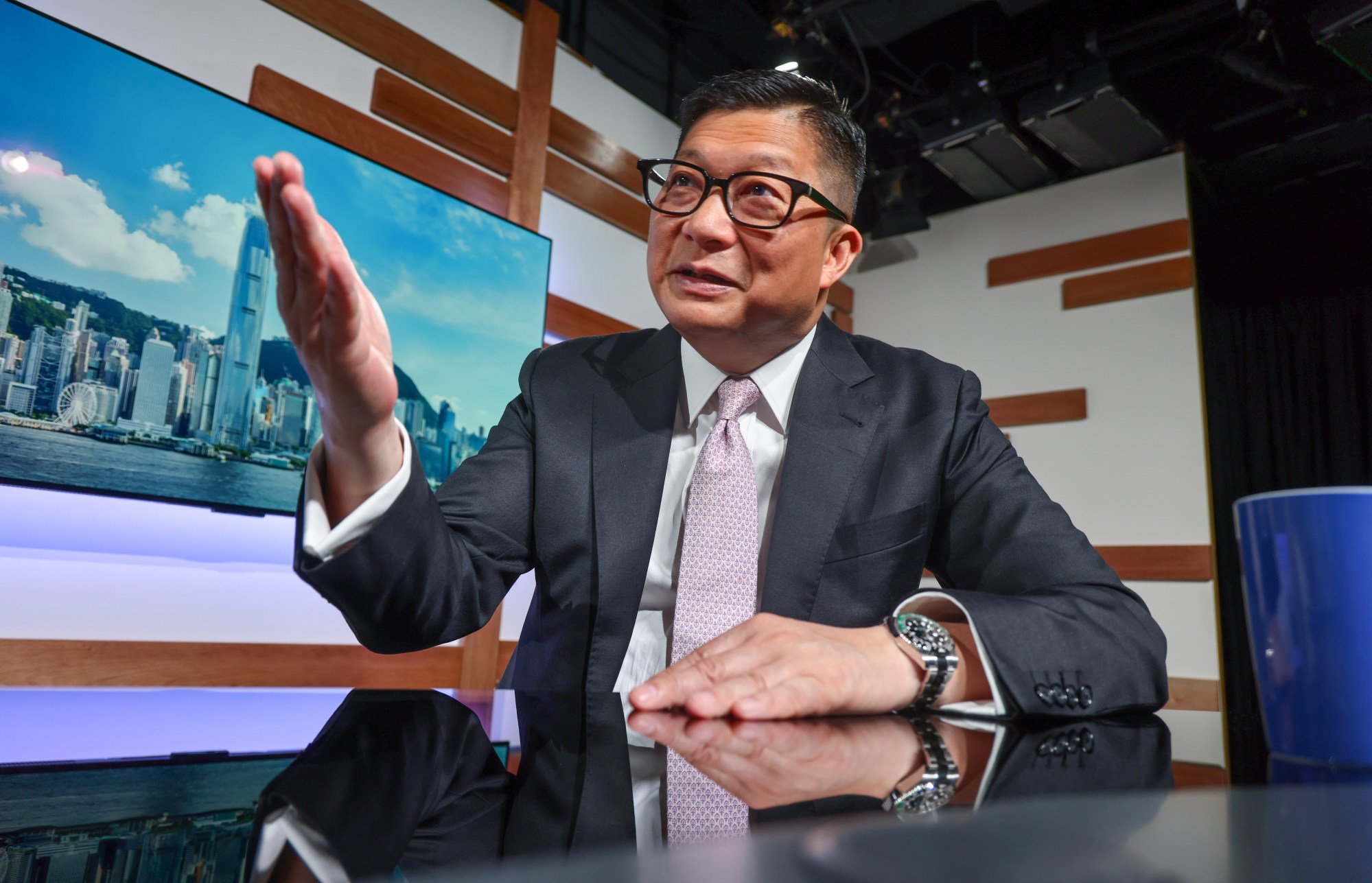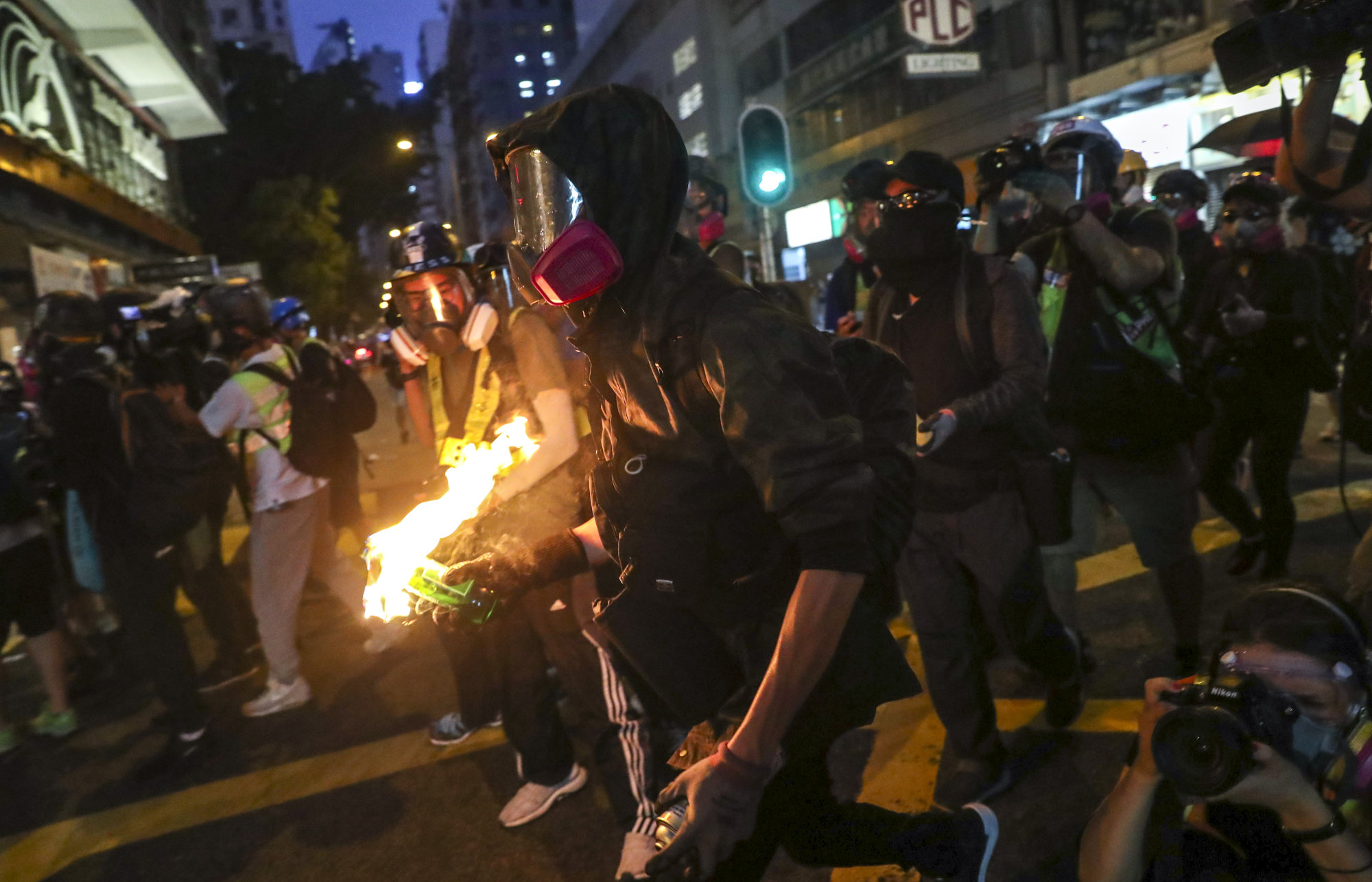Hong Kong’s security chief has revealed authorities have not rejected a single protest application since 2022 as he argued the lack of demonstrations in the city was not a sign of civil society in retreat, but due to the availability of multiple channels to express opinions.
Secretary for Security Chris Tang Ping-keung told the Post that Hongkongers could have refrained from protesting in recent years because they had more effective channels to register their views and the government also now had a heightened “responsiveness” towards public opinion.
“We engage in a lot of discussions with different groups when they have an opinion, we listen and we react. Probably they consider [this as] better than, you know, just go out on the street and cry, because we have dialogue, we react,” Tang said, without disclosing how many protest applications had been made so far since 2022.
Do you have questions about the biggest topics and trends from around the world? Get the answers with SCMP Knowledge, our new platform of curated content with explainers, FAQs, analyses and infographics brought to you by our award-winning team.
“I think you cannot just count the number of how many of those protests or [expressions] of opinion to reflect the level of freedom in Hong Kong.”
The city’s most outspoken rally organisers have disbanded in recent years. Both the Civil Human Rights Front, the umbrella activist group behind many of Hong Kong’s largest protests, and the Hong Kong Alliance in Support of Patriotic Democratic Movements of China, which organised the annual candlelight vigil for the Tiananmen Square Crackdown, disbanded in 2021.
In the same year, the Post counted that more than 50 activist groups, trade unions and political parties had disbanded as the Beijing-imposed national security law came into force a year earlier.
But Tang said residents still continued to enjoy the right to assemble under the law, and that the Public Order Ordinance, which governs public processions and gatherings, has not been amended.
The first approved public demonstration since all Covid-19 pandemic restrictions were lifted was held last March, with all participants told not to wear face masks and to have numbered lanyards.
Police imposed such requirements for the rally organised by a group of homeowners in Tseung Kwan O protesting against reclamation.
On the anti-government protests of 2019, Tang said his bureau would continue to investigate those arrested and press charges against them, if new evidence was uncovered.
According to the security minister, police have arrested just over 10,000 people, of whom about 3,000 have been prosecuted.
“I would like to reiterate that unless it is prescribed by the law that there is a time limit for prosecution, or else as long as we have sufficient evidence, then we can always proceed with the case,” Tang said.

Refuting the argument that pressing charges five years after an arrest was tantamount to justice denied and did not aid in police-community ties, Tang argued the complexity of the protest cases warranted prolonged investigation as police had to comb through considerable reels of CCTV footage to identify arrested persons and their alleged actions.
“As law enforcement, our responsibility is to gather evidence and then put it to the Department of Justice for consideration of prosecution,” Tang said.
“Whether you try to have good relations with the youth and then forfeit the duty to prosecute is not our responsibility.”
But Tang said relations between the police force and Hongkongers had improved in the five years since protests against the controversial anti-extradition bill had descended into widespread, and often violent, clashes between protesters and the force.
Describing the relationship as being “back to normal”, Tang said the prosecution of the now-defunct pro-democracy newspaper Apple Daily to eradicate “false information” that incited hatred had cleared the air between residents and the force.
“I would say the community now understands, so there’s no reason why they still dislike law enforcement,” Tang said.

During his tenure as security chief, Tang had repeatedly lambasted the Hong Kong Journalists Association, accusing the group of having “no recognition” and questioning the professional credentials of the candidates for its executive committee election last month.
Last week, its newly elected chairwoman Selina Cheng was sacked by her employer The Wall Street Journal, an American newspaper. Cheng said she had been fired for her role in the union.
“I think it’s not a well-recognised association. Is it because The Wall Street Journal wants to distance [itself] from them or whatever? I try not to speculate,” Tang said.
Tang also dismissed concerns that the sacking signified shrinking press freedoms in the city.
“I think it’s not correct to put an equation saying you sacked someone, it is because of political reasons or its suppressing press freedom. It’s very dangerous to put an equal sign there,” Tang commented.
More from South China Morning Post:
- Hong Kong police surveillance cameras in public places will have facial recognition: Chris Tang
- Hong Kong’s crime fight hampered by geopolitics but crooks still kept at bay: Chris Tang
For the latest news from the South China Morning Post download our mobile app. Copyright 2024.





